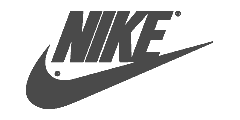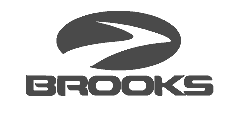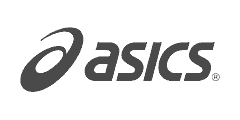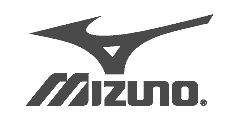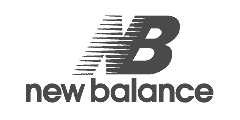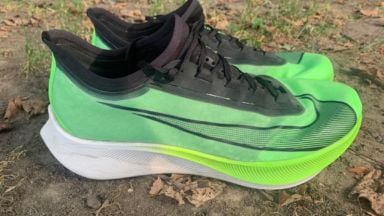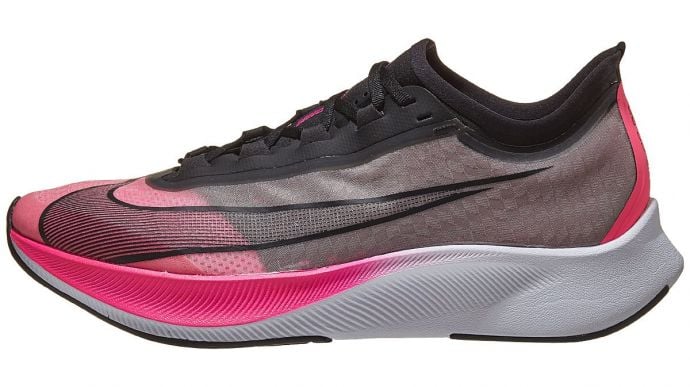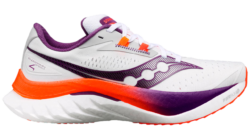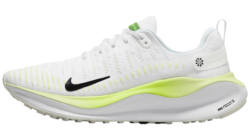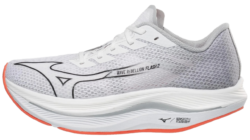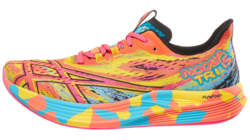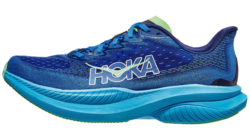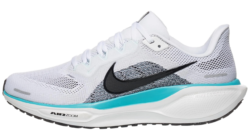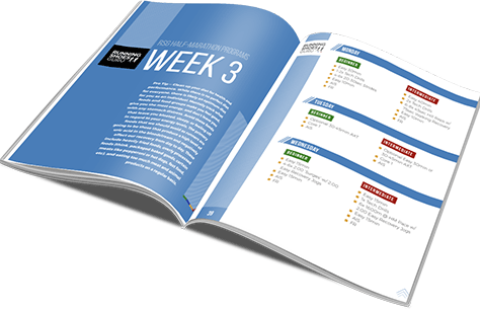Nike Zoom Fly 3 Intro
The affordable running shoe sports car.
The vaporfly next% lite.
The race day ready training shoe.
The innovative shoe inspired by the top-line model.
A pricey option for the “affordable” choice.
All could be used to describe the Nike Zoom Fly series of running shoes.
Each iteration of the Zoom Fly brings about an innovative change as Nike attempts to separate itself as the must have distance road racing shoes.
The Zoom Fly itself is clearly the “affordable” version of the VaporFly Elite, 4%, and now Next% series. Just as the high-end models have changed through the past few years, the Zoom Fly continues to evolve and adapt.
The first Zoom Fly included a plastic plate, Lunarlon foam, and a FlyMesh upper.
The second version of the Zoom Fly, the Zoom Fly Flyknit, changed the plate to carbon fiber like the one found in the higher end models, updated Lunarlon to React foam, and changed the upper to a flyknit material.
The third version, being tested here and now, the Zoom Fly 3 made minor changes to the midsole, completely changed the outsole of the shoe and a complete overhaul of the upper to a new VaporWeave material with an internal bootie wrapping the foot.
The Zoom Fly 3 continues to include a carbon fiber plate and React foam, however comparing the React foam in a pair of Nike Air Zoom Vomero 14s to the React foam in the Zoom Fly 3, React in the Zoom Fly feels softer.
This could be due to having more of the cushioning however.
Nike Zoom Fly 3 First Impressions
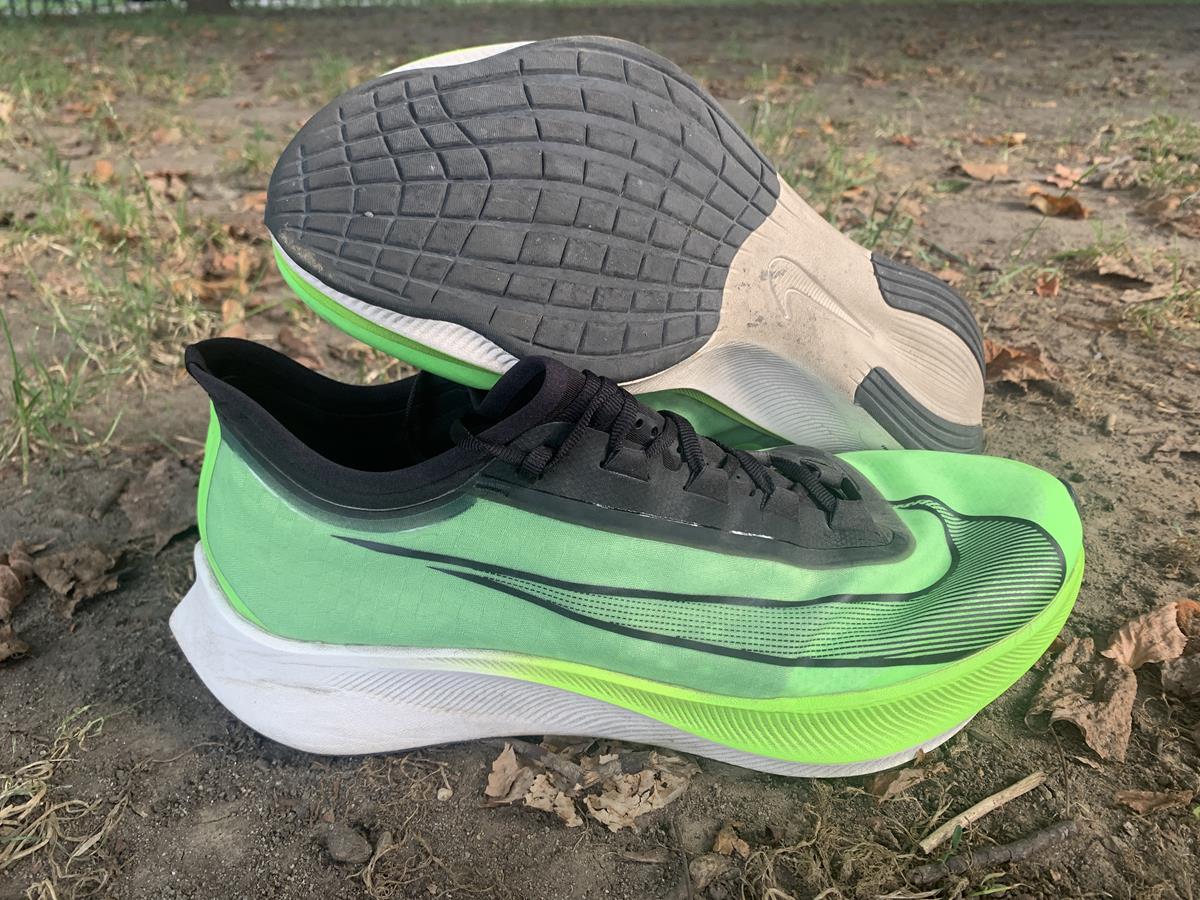
Nike Zoom Fly 3 – Pair
Unboxing the Zoom Fly 3 I was immediately drawn to how the shoe felt heavier in my hand than expected. Disclaimer I do own a pair of Nike VaporFly Next% which is significantly lighter than expected given it’s boat-like size.
My initial suspicion was confirmed that the Zoom Fly 3 has some added weight, about half an ounce, from the previous model.
Putting the Zoom Fly 3 on for the first time the upper was comfortable but narrow and long. There was a ton of room in the toe box compared to other nike shoes I’ve used.
I tilted my foot forward and felt my foot slide within the shoe. Due to the narrow feeling of the Zoom Fly 3 I don’t think this is a size down situation, instead I used the additional eyelet which locked my foot better in place.
Very few shoes do I find this to be completely necessary, the Zoom Fly 3 was one of these instances.
Nike Zoom Fly 3 Sole Unit

Nike Zoom Fly 3 – Sole
The midsole of the Zoom Fly 3 underwent some small changes from the Zoom Fly Flyknit. First, there is more React foam with a higher stack height of the shoe.
This additional foam and stack of the Zoom Fly accounts for the added weight given that the upper seems to be lighter. Additionally the heel-toe offset was lowered from 10mm to 8mm, a lower drop for Nike shoes.
With these changes the shoe still features a full length carbon plate and React foam for a responsive, forward moving feel.
The carbon fiber plate makes for a very rigid sole, especially in your hands. Under the foot the responsiveness of the plate makes up for the rigidity.
The outsole went from a similar model and build to the VaporFly 4% to that of the VaporFly Next%.
A groove runs down the center of the foot from the middle of the foot to the heel which increases some, read very little, lateral flexibility.
There is a large built up rubber area in the mid and forefoot, as well as two small built up areas of rubber around the back of the heel.
These rubber areas increase durability of the outsole and traction, especially when wet, compared to the previous models.
Nike Zoom Fly 3 Upper Unit

Nike Zoom Fly 3 – Top
The largest change that most runners will notice from the Zoom Fly Flyknit to the Zoom Fly 3 is the new VaporWeave upper.
VaporWeave is an upper material made of plastics, specifically TPU and TPE. TPU is the material used in many running shoe companies premier foams.
Adidas BOOST being the prime example, and TPE is the same material that makes up most yoga mats. As insane as using these plastics to create the upper sounds, it works really well!
Obviously Nike didn’t stretch out a yoga mat and wrap your foot in it to make the upper of the Zoom Fly, but it is an innovative way of thinking about what materials are used to create fibers and thus fabric for the running shoes.
It is weaved in a breathable manner, incredibly lightweight, and does not absorb water or sweat – unlike Flyknit.
VaporWeave is currently used in two running shoes for Nike, the Zoom Fly 3 and the Vaporfly Next% and it is used in two drastically different ways.
While the Next% uses the VaporWeave directly as a light upper, the Zoom Fly 3 includes the VaporWeave as a layer outside of an internal bootie made up of breathable mesh in the forefoot and a thick nylon in the midfoot.
While this nylon area is actually comfortable on the foot it can feel very warm over the top of the foot.
Nike Zoom Fly 3 Conclusion

Nike Zoom Fly 3 – Heel
Looking for performance on a budget?
Perhaps a firmer ride to the insanely popular VaporFly 4% or Next%?
Or above a size Men’s 13 (the higher end Nike racer’s either aren’t produced at that size or very limited availability)?
Then the Zoom Fly 3 might be just right for you.
As a carbon plated racing option, the Zoom Fly 3 is a fantastic choice. It will feel firmer than other Nike models and lighter than the Hoka One One Carbon X.
There is definitely a great POP that comes with running in the Zoom Fly 3. One of the major concerns with buying a Vaporfly 4% or Next% is the durability factor.
From some personal experience the Next% is more durable than the 4%, though not sure yet by how much, the Zoom Fly 3 is by far the most durable of the options.
You can race in them, you can train in them. You can put some serious miles on the Zoom Fly 3 in a way that specifically the Vaporfly 4% could not.
Personally, I believe the Zoom Fly 3 is a great shoe for a couple of different scenarios, and a waste for others. Pigeon-holed shoes aren’t a bad thing, as long as you know the role and purchase them for it.
The Zoom Fly 3 can be a great racing shoe for anyone who either wants that firmer feeling.
Can’t afford the higher-end Nike model (look for the Flyknit on sale though if this is the case), is only getting into the carbon-plate higher cushioning racing shoe game, or is a more advanced runner looking for a shoe to excel as their tempo option.
From a performance standpoint the Zoom Fly 3 worked very well at a faster pace over a long distance. Long runs with some faster miles included and distance tempo runs all felt great.
Slower easier miles don’t really work with the plate and caused some ‘hot-spots’ feelings as to be expected. And track workouts or short and fast distance actually felt unstable due to the stack height (especially on a turn).
All in all I believe the Zoom Fly 3 is a great shoe and an improvement over the Zoom Fly Flyknit.
The upper is better, the cushioning feels great, the outsole has better traction, and the shape of the sole unit feels a little better if you heel-strike in them.
If you have enjoyed a previous model of the Zoom Fly, you won’t be let down by the newest form.
We purchased a pair of Nike Zoom Fly 3 from runningwarehouse using our own money. This did not influence the outcome of this review, written after running more than 50 miles in them.
Nike Zoom Fly 3 Price Comparison
This page contains affiliate links. As an Amazon Associate I earn from qualifying purchases.
